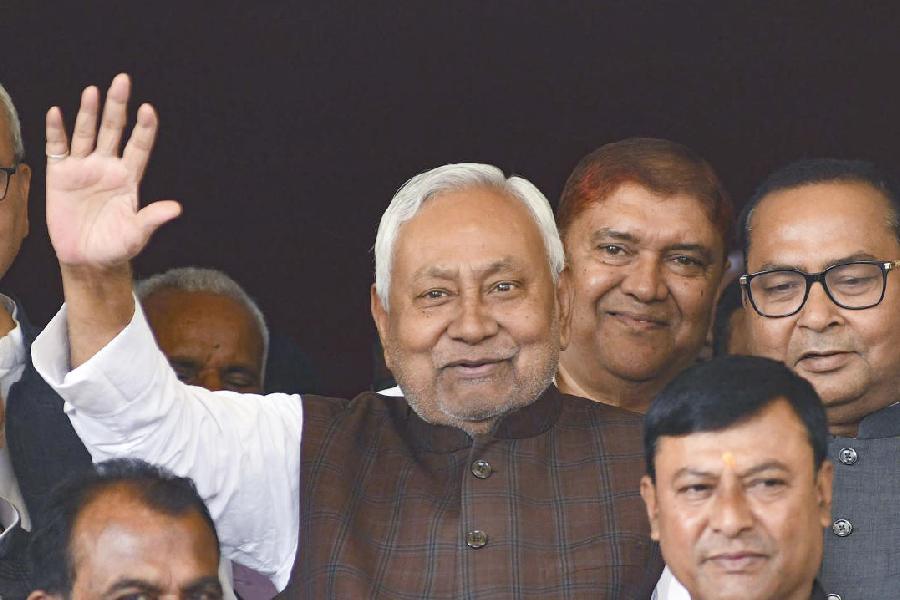Marketing doyen Ajay K. Kohli from Georgia Tech’s Scheller College of Business will take the mike to speak on The Quest for Customer Centricity at IIM Calcutta for GuruSpeak, in association with The Telegraph, on Saturday.
In an email chat with Metro a day before the talk, Kohli spoke on a range of issues from what states should do to market themselves to the Indian giants he thinks are in the global league. Excerpts:
Marketing today is not just a strategy that businesses must master. We see several governments and their agencies are doing it effectively across the globe. There is a growing trend in India where states are vying with each other to attract investment from potential investors as well and tourists to boost local economy. What marketing tools would you recommend for a state to ideally explore/deploy and make it more attractive for domestic and foreign investors?
Conceptually, you need to create an investor-friendly atmosphere. The “product” that a state must offer to investors is a combination of things such as infrastructure, labour, skill set and political stability. These are of paramount importance for attracting investors. Ease of doing business is equally important in terms of statutory clearances. Facilitation and hand-holding of entrepreneurs in the initial stages, for example through university incubators, are also critical aspects. Unless a state has a “product” investors like, advertising or promotion is unlikely to have much impact, and may backfire.
For service-oriented businesses, a customer-centric focus is a key aspect of their marketing strategy. The state too is a service-focused entity. What are the best practices that a state should consider from businesses in developing their own marketing strategy?
Customer-centricity is equally relevant to businesses and states. A state has at least two sets of customers. Its citizens are internal customers who require services. Understanding what services different groups of citizens need and working to deliver them would serve a state well. But a state also has external customers — investors, prospective businesses, skilled labour, tourists and so on. Again, a state can do well by actively finding out what services these customers want and delivering them. Similarly, finding out their pain points and alleviating them can go a long way. The concept is simple, but a lot of organisational reform is often needed.
Marketing a state is somewhat different from marketing a business. Even if a strategy is worked out, implementation could be difficult. What could be the challenges there and how can those be ironed out?
In principle, marketing a business or a state is not different. What is mostly lacking in a state’s marketing is customer segmentation and addressing the different segments with different sets of solutions and different price points. In addition, delivering on these requires an organisation that takes this task seriously. For example, what are state employees measured on? What are their KPIs? What metrics are used to track a state’s success or lack thereof? What criteria are used to hire employees? These nuts-and-bolts issues are no different for a state compared to a business, and need to be worked through. A nation state that does very well on this dimension is Singapore. Much can be learnt from its experiences.
Is there a case to not to oversell? What are the pitfalls that a state could avoid while marketing itself?
Over-promising is bad for you. If you cannot deliver to expectations, you will have disappointed customers regardless of whether you are a business or a state. Politicians often overpromise and build up unrealistic expectations, which later cause serious loss of credibility. This comes back to haunt marketing efforts the next time around.
India is an aspiring nation and so are the corporates headquartered out of this country. However, we do not see too many Indian conglomerates on the global stage.
I am not an expert on Indian companies but I do see a number of Indian or Indian owned conglomerates on the global stage. These include the house of Tata (especially JLR, TCS, Tata Hotels), the steel conglomerate Arcelor Mittal, the Aditya Birla Group companies, Reliance Industries, Bharti Airtel, and so on. Flipkart has been in the news lately.
In this context, may we ask the following: What could make Indian companies click on the global stage?
As one can imagine, the competition on the global stage is fierce and, of course, global. Again, without being an expert specific to Indian companies, the mantra of success on the global stage is the same regardless of the country of origin. A key success ingredient really boils down to developing compelling value propositions for clearly identified sets of customers/consumers, and delivering day in and day out. This is easier said than done. It takes a maniacal focus on making customers successful as their environments evolve. This is very, very hard work and calls for unwavering attention from the top management down to the most junior employee.
Do you find any Indian company/brand successfully doing any of what should be done?
Of course. Some of the companies I’m familiar with include Tata Hotels, TCS, Wipro, Tata Land Rover, and some of the Aditya Birla Group companies. From what I hear, there are several other impressive companies -- Godrej, Dabur, Marico, Bharti Airtel, Apollo Tyres, and so on.
Where do you think Indian corporates are lagging?
Again, with my limited exposure to Indian-owned companies, I think several Indian of them have successfully created their brands and their product-market segments. The success thereafter is not just a matter of delivering great products/service, but rather delivering great customer/consumer experiences and helping customers succeed.
India is also witnessing surge in entrepreneurship. Several young professionals are quitting jobs and setting up start-ups. They are short of funds and experience. What would your advice be in marketing their product/services if they want to be successful?
There is no single mantra of success for start-ups as they span a whole range of verticals, many of which are in the B2B area. A creative idea or a market disruption concept also needs a strong strategy and a good execution team. Perhaps more important, start-ups must be amazingly flexible in adjusting their offerings and target market segments as prospective customers react to their proposals. Funds are available to those who convert their inspiration into a strong business case and show the competence to take it forward. Investors who are convinced of a start-up’s value proposition can often open doors to customers as well as business partners, and help the start-up succeed.











